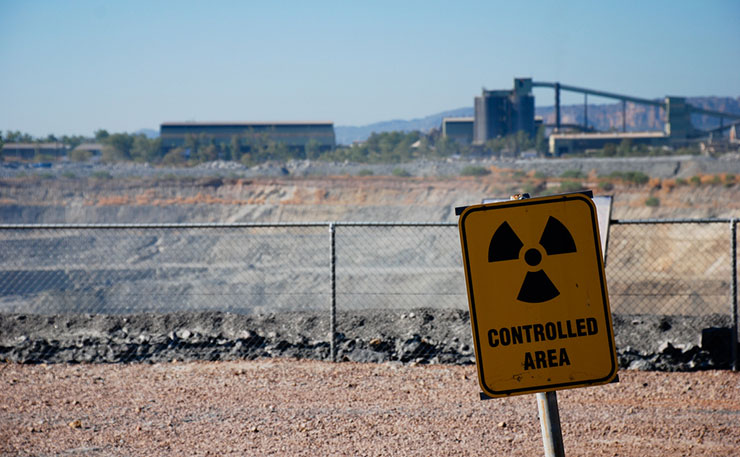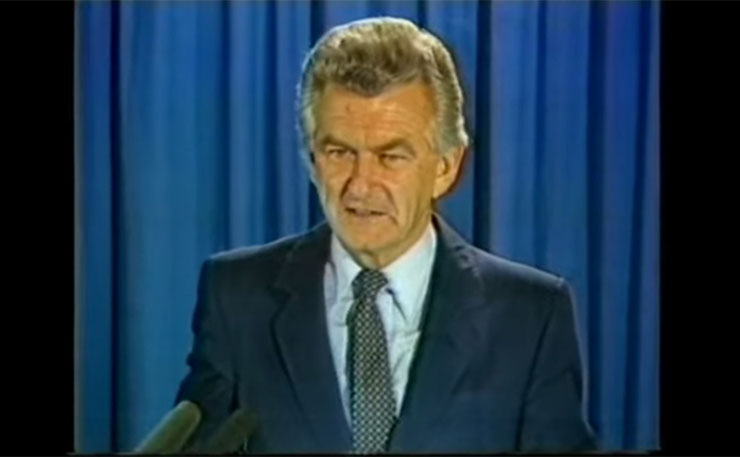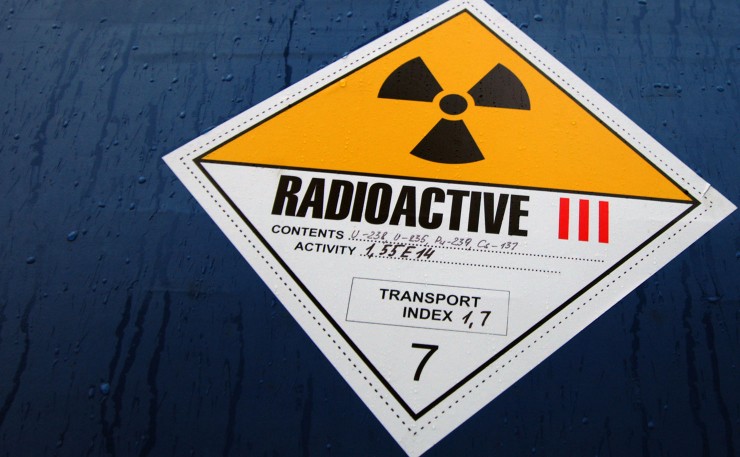There’s no market, there’s no expertise, and there’s no need for Australia to become the world’s nuclear waste dump, writes Dave Sweeney.
Having failed to deliver on promises of national wealth from uranium mining – nuclear industry promoters are now talking up the prospect of ‘stupendous’ riches from Australia hosting the world’s high-level radioactive waste.
The South Australian Nuclear Fuel Cycle Royal Commission, headed by former Governor Rear Admiral Kevin Scarce, has unleashed a frontier style enthusiasm that has seen SA’s Adelaide Advertiser newspaper trumpeting the “Scrooge McDuck levels of cash which the state would be swimming in”.
With the promised dollar signs shinier in the eyes of many politicians and commentators than the very real danger signs, it is time for some cool heads when it comes to plans to import hot wastes.
As home to around 35 per cent of the world’s uranium reserves, Australia has long been a significant player in the global nuclear trade and there are some useful lessons from this experience.
Since the 1980’s the ‘modern’ period of Australian uranium mining has been dominated by two major operations – Ranger in Kakadu and Olympic Dam in northern South Australia.
The sector has been constrained by political uncertainty, restrictions on the number of permissible mines, a consistent lack of social license and strong Aboriginal and community resistance.

Recent years have seen fewer political constraints but a dramatic decline in the price of uranium and popularity of nuclear power, following the Australian uranium fuelled Fukushima nuclear crisis – which is fast approaching its five year anniversary, and whose radioactive fallout continues to negatively impact lives in Japan and beyond.
Australia now accounts for approximately 11 per cent of global uranium production, down from over 18 per cent a decade earlier.
Australia’s uranium production of 5,000 tonnes in 2014 was the lowest for 16 years.
The industry generates less than 0.2 per cent of national export revenue and accounts for less than 0.02 per cent of jobs in Australia. Less than one thousand people are employed in Australia’s uranium industry.
In short, the sector is high risk and low return.
Against this background, around 12 months ago South Australian Premier Jay Weatherill announced a Royal Commission to explore opportunities to expand the nuclear industry in SA. The Commission was tasked with examining development options over four broad areas: uranium mining, expanded uranium processing, domestic nuclear power and the storage and management of high-level radioactive waste.
The move surprised many at the time both because of SA’s leading role in renewable energy production (the state is on track to be 50 per cent powered by renewables this year) and the Fukushima inspired retreat from the nuclear industry.
Early commentators criticised the Commission’s pro-industry terms of reference and heavily skewed pro-nuclear ‘expert’ panel. They argued then that the process was either a Trojan Horse for, or would inevitably drift to, support for a renewed push for international radioactive waste disposal in Australia.
This view was vindicated in the Commissions recently released tentative findings.
The Commission – unsurprisingly given the overwhelming market sentiment – has stated it is unconvinced about the chances for any uranium industry expansion and acknowledges nuclear power is not commercially viable in the foreseeable future. Yet, as anticipated by critics, the Commission was glowing about the opportunities that could come from hosting international high-level radioactive waste.
Proposals to store or dispose of global radioactive waste in Australia are not new. Former PM Bob Hawke routinely re-visits the issue and an international consortium called Pangea Resources made a serious push to develop a facility in a remote part of Western Australia in the 1990’s.

The Commission has correctly identified that radioactive waste management is an unresolved environmental challenge. However its enthusiasm exceeds its evidence when it comes to analysis of cost, complexity and the history of failed international waste storage or disposal programs. Managing nuclear waste has proven to be a problem without a satisfactory global solution.
Some countries, most notably Finland, are advancing deep geological burial sites. But after seven decades of commercial nuclear power operations not one nation has a final disposal site for high-level waste.
Against this international landscape of failed projects, timeline delays and massive cost overruns it is hard to see Australia providing the silver bullet. Australia has limited nuclear industry experience and infrastructure, and lacks the required regulatory framework.
A range of state and federal laws expressly preclude such an activity and there is continuing community contest and no bi-partisan political support. In July 2015 Labor’s national conference re-affirmed that it would ‘remain strongly opposed to the importation and storage of nuclear waste that is sourced from overseas in Australia’.
Australia’s dismal track record over more than two decades in relation to managing our own relatively modest stockpile of radioactive waste also provides scant reason for confidence in the Commission’s global ambition.
The issue, especially in a federal election year, now increasingly becomes one of politics given the plans profound national implications and the critical need for bi-partisan support.
Premier Weatherill is keen to talk with the Commonwealth Government ahead of the Commission’s final report on May 6. While the SA Government does not currently have a fixed view, the Premier has stated he is ‘prepared to consider such a proposition’ and will respond to the state Parliament before the end of the year.
Unlike the global nuclear power sector which is dying out due to growing costs, public opposition and the rise of renewables – nuclear waste is like zombie waste – it remains undead. From its beginning to its never-end the nuclear industrial chain is full of false promises and real problems, and the Commission’s waste talk demands serious scrutiny and critical attention.
This could start with asking two questions: are the options really so scarce that South Australia’s and Australia’s best economic chance requires hosting some of the world’s worst waste? And, with its track record from mine-site to reactor would you really trust the nuclear industry, forever?
Donate To New Matilda
New Matilda is a small, independent media outlet. We survive through reader contributions, and never losing a lawsuit. If you got something from this article, giving something back helps us to continue speaking truth to power. Every little bit counts.





